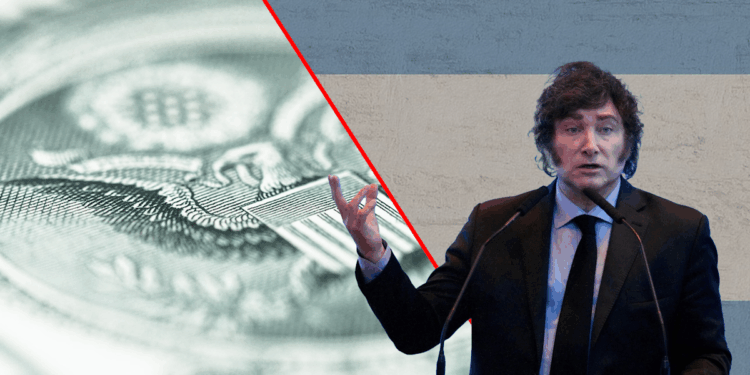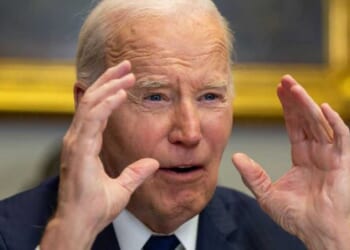Much like the famed anthem “Don’t Cry for Me Argentina,” the ghosts of Evita and Peronism haunt the South American country to this day. Even with economist-turned-president Javier Milei turning the country around, the specter of socialism continues to stymie his efforts.
Rachel’s full performance of ‘Don’t Cry For Me Argentina’ today: pic.twitter.com/pNlr3sbVoS
— Rachel Zegler Source (@ZeglerSource) June 14, 2025
Last week, Treasury Secretary Scott Bessent announced that the U.S. would be throwing Argentina a lifeline — a $20 billion currency swap to help stabilize the peso and provide liquidity for the country as it approaches the midterm elections.
As The Wall Street Journal put it, “Bessent said that it is ‘much better to form an economic bridge with our allies’ and ‘end up with people who want to do the right thing’ than have to be ‘shooting narco gunboats,’ an apparent reference to the boats that the U.S. has targeted off the coast of Venezuela.”
Bessent is pointing out the reality of what’s at stake in Argentina. Milei rose to power by promising to restore stability and cut inflation. He is fundamentally trying to transform historically socialist Argentina into a free-market economy. He has been incredibly successful.
As the editors at National Review explained earlier this year:
Argentina’s economy is growing at 7.7 percent, according to the latest year-over-year data. It grew by 1.9 percent in April, the most recent month for which data are available. The Chinese economy is growing at a rate of about 5 percent per year (if you believe the official statistics, which there are good reasons to doubt).
Argentina is achieving this growth not through a strategic industrial policy or a mercantilist trade policy. It’s achieving it by rolling back the overextended public sector, slashing the government budget, controlling the money supply, and removing price controls.
However, Milei’s troubles began in September after a scandal broke out claiming he and his sister were corrupt. He then experienced a palpable defeat in the province of Buenos Aires. The Peronist — the far-left socialists who got Argentina into its financial mess in the first place — won 46%, while Milei’s party only won 34%. The peso started to free-fall in value, and suddenly, Milei needed a bailout.
Ergo, Milei went to Trump, with whom he has aligned himself politically. As a result, Trump is going to bat for the Argentine. The president, according to the Journal, “praised Milei as ‘MAGA all the way’ and said the bailout was ‘really meant to help a good financial philosophy where Argentina can be successful again.’”
Milei is facing another election very soon, and his ability to stabilize the peso is the tipping point. Trump said:
And the election is coming up very soon, and it’s a very big election being watched by the world because he’s done an incredible job. But with that comes some pain and — they have some pain, and now they’re coming out of it. I think the victory is very important. Your poll numbers, I hear, are pretty good, but I think they’ll be better after this. And you know, our approvals are somewhat subject to who wins the election because if a socialist, or in the case of New York City, a communist wins, you feel a lot differently about making an investment.
President Trump and Secretary Bessent are so convinced about this investment in Argentina that they have actually approved another $20 billion being added to the lifeline, bringing the total investment to $40 billion.
Leftists have taken this to mean that Trump is trying to rig the elections and that he’s using his power to help out a buddy. Then they ask what they think is the knockout punch: Is this America First?
The short answer is yes for the simple reason that we are applying the Monroe Doctrine and protecting our allies in the region. Though in this case, the threatening foreign influence is Communist China.
Foreign policy is about making not just ideological alliances but economic ones as well. Trump just demonstrated this in the Middle East, where he was able to bring together countries with diametrically opposed worldviews and political philosophies.
China is a big player economically. It has swayed nations all over the world, particularly in South America. Stopping its influence is in our best interest. We are already experiencing the harmful effects of decades of not doing so. China has a monopoly on rare earth minerals, and the whole world relies on them to create some of the amazing technology we have today. China has also created chokepoints at strategic shipping lanes like the Panama Canal, which still hasn’t been resolved to anyone’s satisfaction.
This bailout for Argentina is a strategic move. Hopefully, it pays off in the long run.
















